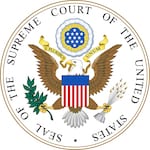Who is a member?
Our members are the local governments of Massachusetts and their elected and appointed leadership.
 On June 27, the U.S. Supreme Court ruled that mandatory union agency fees violate the free speech rights of employees under the First Amendment.
On June 27, the U.S. Supreme Court ruled that mandatory union agency fees violate the free speech rights of employees under the First Amendment.
Unlike union dues, which may include costs related to political causes, agency fees cover the direct costs associated with collective bargaining, contract administration, and representing employees in grievances and arbitrations.
In Janus v. AFSCME, the Supreme Court ruled that requiring agency fees compels employees who are not union members to support a union’s views, with which they may disagree. The decision overturned the 1977 Supreme Court decision in Abood v. Detroit Board of Education, which upheld the constitutionality of agency fee arrangements.
The Janus decision has immediate implications for municipal employers.
In Massachusetts, agency fees are authorized by state statute and included in many collective bargaining agreements. The Janus decision, however, requires nonmember employees to clearly and affirmatively consent before any deductions can be made.
Municipal employers are advised to consult with legal counsel to immediately stop payroll deductions for non-union members in all bargaining units and to notify union representatives of this action and the intention to comply with the Janus decision. Municipal counsel can assist in reviewing compulsory fee clauses in collective bargaining agreements, advising employers on written notifications to unions, and requesting meetings with union representatives about procedures going forward.
Employers should also review employee consents for payroll deductions on file.
House Speaker Robert DeLeo and Senate President Harriette Chandler have stated they would like to pass a bill that addresses the limitations placed on unions by the Janus decision before the end of formal legislative sessions on July 31. The MMA is following this legislation and the changes it will bring to the workplace with respect to union organizing.
Attorney General Maura Healey issued an advisory in response to the Janus decision affirming the collective bargaining rights of public sector employees, explaining the impact of the decision on union dues and agency fees, and calling to mind the procedures for access to union members and personal information in the public sector.
The advisory can be found at tinyurl.com/AGJanus.
The Division of Labor Relations, the agency responsible for enforcing Chapter 150E, has also issued guidance for unions and employers, which can be found at tinyurl.com/DLRJanus.